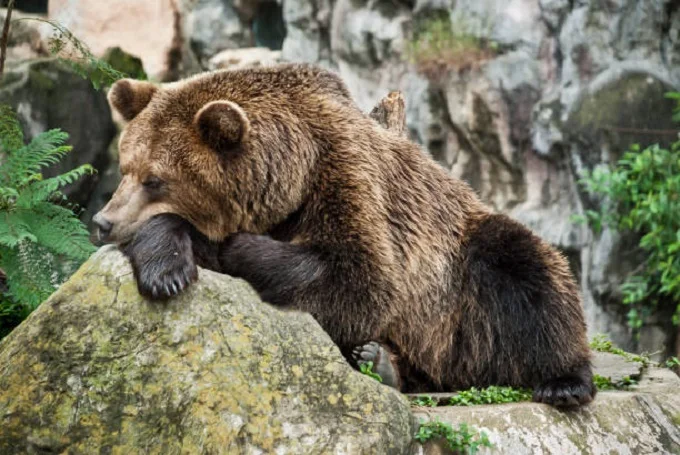Bears are not very violent creatures. They will, however, defend themselves if they are in danger. This is why it’s critical never to approach or startle these creatures. Adult bears, after all, are bigger and stronger than humans. Many people are curious as to what would happen if you awaken the bear from its hibernation.
It’s better not to check, according to experts. When a bear feels attacked, it may instantly awaken to defend itself. When bears hibernate, their body temperature drops just a few degrees. This allows them to become attentive faster than other animals. Many other animals hibernate by lowering their body temperature to near freezing.
While many people associate hibernation with profound slumber, this is not always the case. Bears might wake up and walk about in their dens at this time. If they perceive danger, this occurs more often. Bears have been known to flee their dens when they are startled. Bears are also among the most powerful creatures on the planet.
Why do bears go into hibernation?
Why do these creatures hibernate in the first place? Their bodies, like all living things, expend energy. Eating gives them greater energy. During the frigid winter months, finding food is significantly more difficult. Hibernation is a means for bears and other animals to survive without food for prolonged periods.
The bear’s biological processes slow down during hibernation. This is done to preserve electricity. Their body temperature begins to fall. Their respiration and heart rate both slow down. Their bodies start to burn calories more slowly as well. These modifications enable the bear to live longer on its fat.
During hibernation, bears eat a lot of fat. They do, however, preserve the majority of their muscle and bone mass. Scientists are fascinated by this mechanism. People who do not utilize their muscles for an extended period lose these tissues. This is quite common in coma patients. Some researchers are researching bear hibernation in the hopes of discovering what helps them to keep their muscles.
The researchers are also interested in learning how bears regulate their body temperature. They believe it will benefit future stroke sufferers. They claim that reducing body temperature after a stroke may help to prevent brain damage.
Is hibernation the same for all animals?
Chipmunks, snakes, and bees are among the species that hibernate. Do they behave in the same manner as bears? Not at all. As previously stated, most hibernating species reduce their body temperature significantly. Many animals hibernate at various periods throughout the year. That’s correct; this isn’t only a holiday custom! In the summer, several creatures hibernate.
Never bother a bear, particularly one that is sleeping. It’s also crucial to stay away from other sleeping animals. They may suffer severe consequences as a result of their waking. Bears that sleep need to save their energy. After all, who enjoys being startled awake? The sound of the alarm clock scares the majority of people every morning. Animals, like humans, need rest. Keep your distance if you come across a sleeping creature, big or little.
